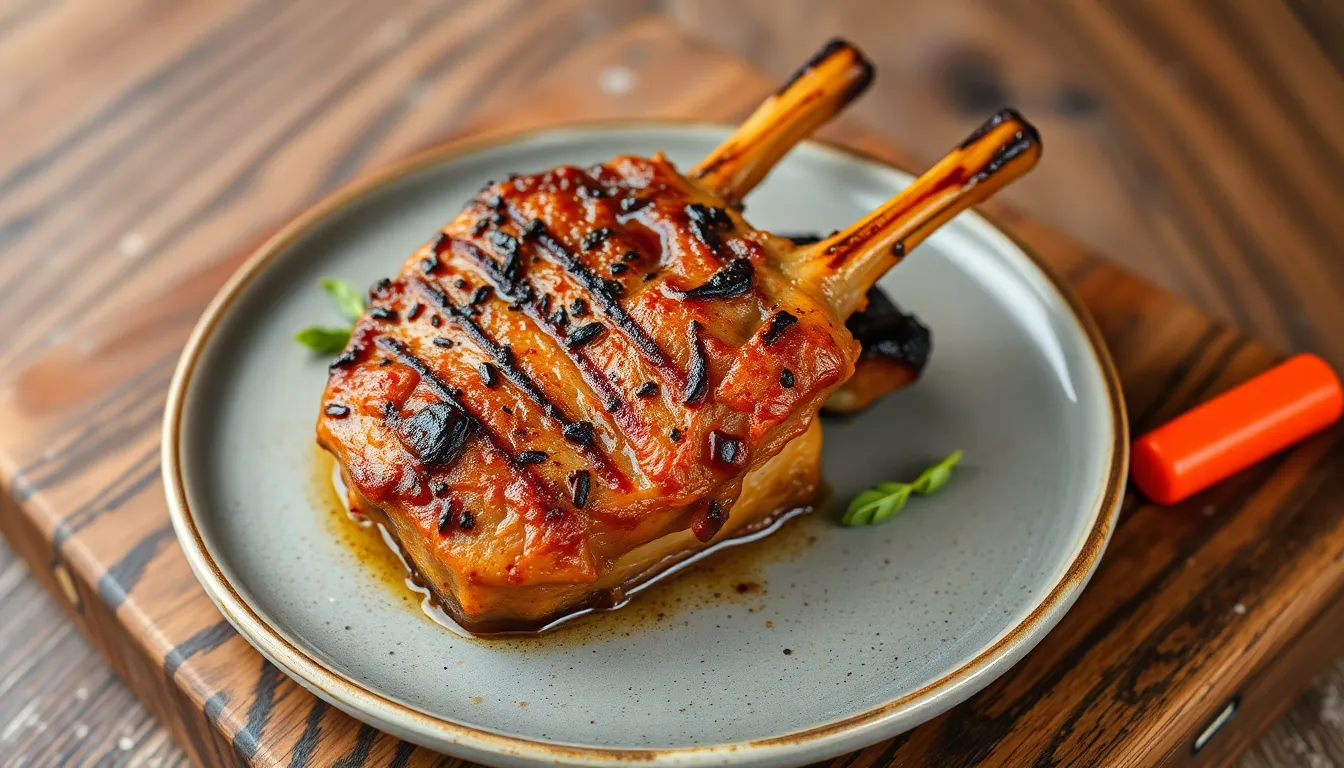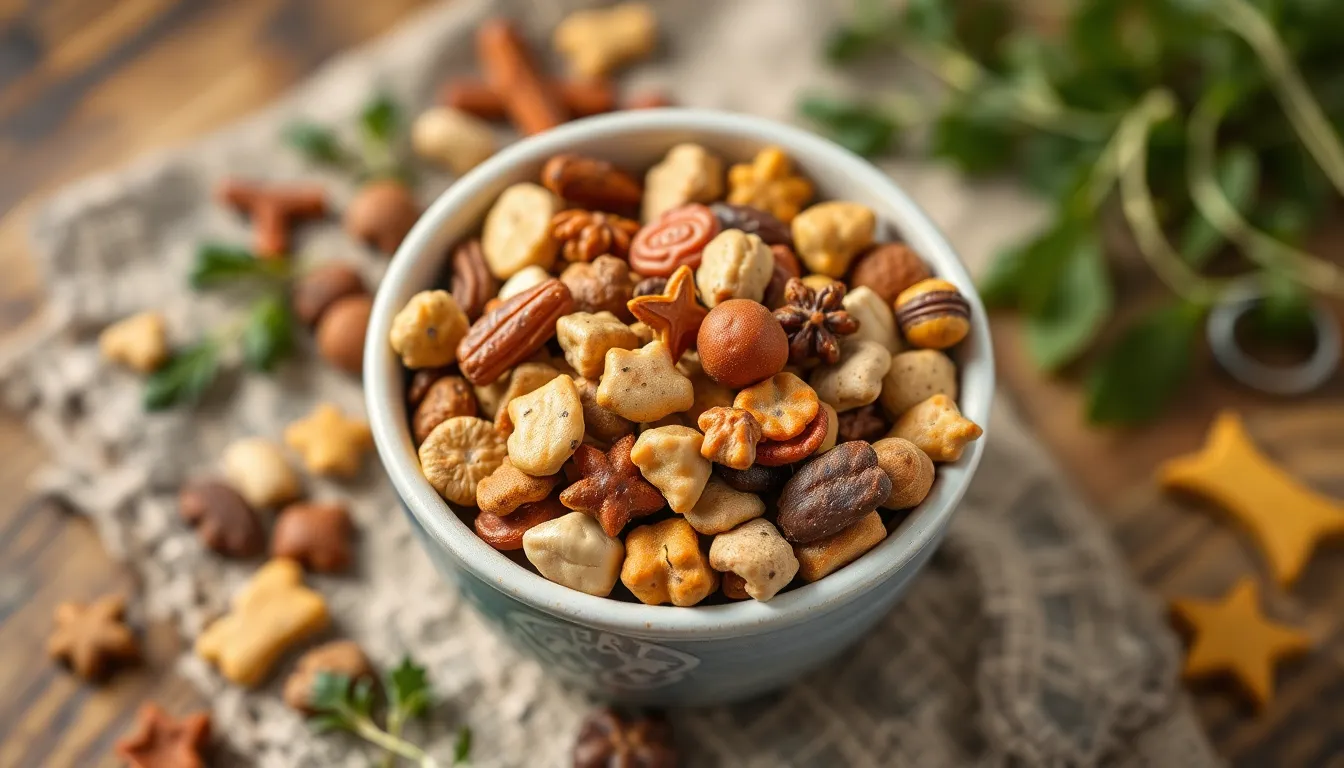The Best Broiling Techniques for Flavorful Lamb
Broiling is a cooking method that can transform even the simplest cuts of meat into mouthwatering dishes. It involves cooking food with high, direct heat from above, similar to grilling but in reverse. This technique is particularly favorable for lamb, a meat celebrated for its rich flavor and tenderness. However, to achieve the best results, it’s essential to utilize the right techniques tailored to lamb. In this article, we’ll explore everything from broiling principles to selecting the best cuts, preparing your meat, and serving up a delectable meal that’s sure to impress.
Section 1: Understanding Broiling
Definition of Broiling
Broiling involves cooking food at high temperatures from an overhead heat source, typically in an oven. This method quickly sears the surface of the meat, locking in juices and enhancing flavor.
Difference Between Broiling and Grilling
While both broiling and grilling involve direct heat, the primary difference lies in the heat source’s position:
- Broiling: Heat comes from above, usually from the oven’s broiler element.
- Grilling: Heat comes from below, typically from a gas or charcoal grill.
Benefits of Broiling Lamb
- Quick Cooking: Broiling is an efficient method, cooking lamb quickly, which is perfect for weeknight dinners.
- Flavor Enhancement: The high heat caramelizes the meat’s surface, enhancing its natural flavors.
- Healthier Option: Excess fat drips away during broiling, resulting in a leaner dish.
Section 2: Choosing the Right Cut of Lamb
Selecting the proper cut of lamb is crucial for broiling. Different cuts vary in flavor, tenderness, and cooking times. Here’s an overview of popular cuts ideal for broiling:
- Lamb Chops: Perfect for quick broiling, these are tender and flavorful.
- Leg of Lamb: A more substantial cut that’s juicy and savory.
- Rack of Lamb: Known for its succulent meat and mild flavor, this cut is visually striking.
Key Factors to Consider When Selecting Cuts
- Thickness: Thicker cuts may require longer cooking times.
- Fat Content: Look for marbling, which adds flavor and moisture.
- Freshness: Always choose the freshest lamb available for the best taste.
Tips for Purchasing Quality Lamb
- Buy from a reputable butcher or trusted source.
- Look for bright red meat with a firm texture.
- Avoid any cuts that appear brown or have a strong odor.
| Cut of Lamb | Ideal Thickness | Cooking Time | Flavor Profile |
|---|---|---|---|
| Lamb Chops | 1 inch | 6-8 minutes | Tender and rich |
| Leg of Lamb | 1.5 inches | 12-15 minutes | Juicy and savory |
| Rack of Lamb | 1.5 inches | 10-12 minutes | Succulent and mild |
Section 3: Preparing Lamb for Broiling
Before broiling, proper preparation is essential to enhance the flavor and tenderness of the lamb.
Steps for Marinating Lamb
- Use Fresh Ingredients: Fresh herbs, garlic, and citrus can elevate the flavor.
- Recommended Marinades:
- Garlic and rosemary
- Lemon juice and olive oil
- Yogurt-based marinades with spices
Importance of Bringing Lamb to Room Temperature
Before cooking, let your lamb sit at room temperature for approximately 30 minutes. This step ensures even cooking and helps the meat retain moisture.
Seasoning Tips for Optimal Flavor
- Use a generous amount of salt and pepper to enhance the natural flavors.
- Consider adding spices like cumin or paprika for a flavor boost.
- Don’t overlook the importance of fresh herbs, which can add a vibrant touch.
Section 4: Broiling Techniques
Technique 1: Traditional Broiling
Here’s how to set up your broiler for traditional broiling:
- Preheat your broiler for about 5 minutes.
- Position the oven rack 4-6 inches from the heat source.
- Place the marinated lamb on a broiler pan to catch drippings.
Timing Tips for Different Cuts
- Lamb Chops: Broil for 6-8 minutes, flipping halfway through.
- Leg of Lamb: Broil for 12-15 minutes, checking for doneness.
- Rack of Lamb: Broil for 10-12 minutes, watching closely to avoid overcooking.
Technique 2: Reverse Searing
This method is particularly advantageous for thicker cuts of lamb.
- Start by cooking the lamb at a low temperature (around 275°F or 135°C) in the oven until it reaches about 10-15 degrees below your desired doneness.
- Then, switch to broiling for a quick sear to create a crispy crust.
Section 5: Monitoring Doneness
To ensure your lamb is cooked to perfection, it’s important to monitor its doneness levels.
Overview of Doneness Levels for Lamb
- Rare: 120-125°F (49-52°C)
- Medium Rare: 130-135°F (54-57°C)
- Medium: 140-145°F (60-63°C)
- Medium Well: 150-155°F (65-68°C)
- Well Done: 160°F (71°C) and above
Recommended Internal Temperatures
Using a meat thermometer is the best way to check the internal temperature of your lamb. Insert it into the thickest part of the meat, avoiding the bone.
Tools for Checking Doneness
- Instant-read or digital meat thermometer
- Leave-in meat thermometer for large cuts
- Visual cues such as juices running clear for well-cooked lamb
Section 6: Serving Suggestions
Once your lamb is perfectly broiled, it’s time to serve it up right!
Recommended Side Dishes that Pair Well with Broiled Lamb
- Roasted vegetables (e.g., carrots, asparagus, Brussels sprouts)
- Garlic mashed potatoes or creamy polenta
- Simple green salad with vinaigrette
Garnishing Ideas for Presentation
- Fresh herbs like parsley or mint for a pop of color.
- Slices of lemon or lime for a zesty touch.
- Drizzle of balsamic reduction or olive oil for added flavor.
Wine Pairings to Enhance the Meal
- Full-bodied red wines like Cabernet Sauvignon or Shiraz
- Medium-bodied wines such as Merlot or Grenache
- White wines with good acidity, like Sauvignon Blanc, for a refreshing contrast
Conclusion
Broiling lamb can elevate your dining experience, transforming a simple meal into a gourmet feast. By mastering the best broiling techniques, selecting the right cuts, and enhancing flavors through marinades and seasonings, you can create flavorful lamb dishes that are sure to impress your family and friends. Don’t hesitate to experiment with different cuts and flavor profiles to find your perfect combination.
We invite you to share your experiences with broiling lamb or any unique recipes you’ve tried in the comments below. Happy cooking!
Call to Action
If you enjoyed this article and want to learn more about cooking tips and techniques, be sure to subscribe to our blog for updates. Follow us on social media for daily recipe inspiration!
Additional Resources




